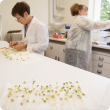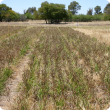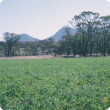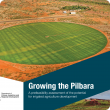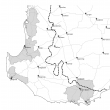Services
Search in Services
Filter services by topic
- (-) Remove Pastures filter Pastures
- Crops (15) Apply Crops filter
- Grains (8) Apply Grains filter
- Pasture management (6) Apply Pasture management filter
- Pasture establishment (6) Apply Pasture establishment filter
- Pasture species (5) Apply Pasture species filter
- Lupins (4) Apply Lupins filter
- Climate, land & water (4) Apply Climate, land & water filter
- Grains research & development (4) Apply Grains research & development filter
- Pests, weeds & diseases (3) Apply Pests, weeds & diseases filter
- Production & postharvest (3) Apply Production & postharvest filter
- Soils (3) Apply Soils filter
- Managing soils (3) Apply Managing soils filter
- Food, export & investment (3) Apply Food, export & investment filter
- Land use (3) Apply Land use filter
- Export services (3) Apply Export services filter
- Barley (3) Apply Barley filter
- Livestock species (2) Apply Livestock species filter
- Measuring and assessing soils (2) Apply Measuring and assessing soils filter
- Soil nutrients (2) Apply Soil nutrients filter
- Livestock management (2) Apply Livestock management filter
- Wheat (2) Apply Wheat filter
- Plant biosecurity (2) Apply Plant biosecurity filter
- Livestock research & development (2) Apply Livestock research & development filter
- Agricultural exports (2) Apply Agricultural exports filter
- Livestock & animals (2) Apply Livestock & animals filter
- Biosecurity (2) Apply Biosecurity filter
- Beef cattle (2) Apply Beef cattle filter
- Irrigated crops (2) Apply Irrigated crops filter
- Biosecurity & quarantine (2) Apply Biosecurity & quarantine filter
- Resource assessment (1) Apply Resource assessment filter
- Pulses (1) Apply Pulses filter
- Small landholders in Western Australia (1) Apply Small landholders in Western Australia filter
- Report card on conditions and trends (1) Apply Report card on conditions and trends filter
- Water (1) Apply Water filter
- Water management (1) Apply Water management filter
- Postharvest (1) Apply Postharvest filter
- Testing (1) Apply Testing filter
- Sowing (1) Apply Sowing filter
- Soil acidity (1) Apply Soil acidity filter
- High rainfall pastures (1) Apply High rainfall pastures filter
- Canola (1) Apply Canola filter
- Breeding & varieties (1) Apply Breeding & varieties filter
- Assessment for agricultural expansion (1) Apply Assessment for agricultural expansion filter
- Crop diseases (1) Apply Crop diseases filter
- Crop weeds (1) Apply Crop weeds filter
- New horticulture crops (1) Apply New horticulture crops filter
- Horticulture (1) Apply Horticulture filter
- Diseases (1) Apply Diseases filter
- Oats (1) Apply Oats filter

